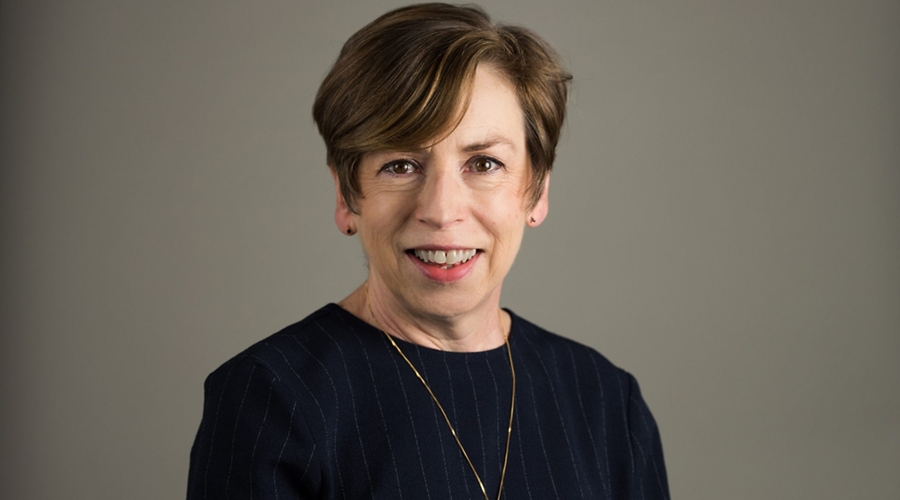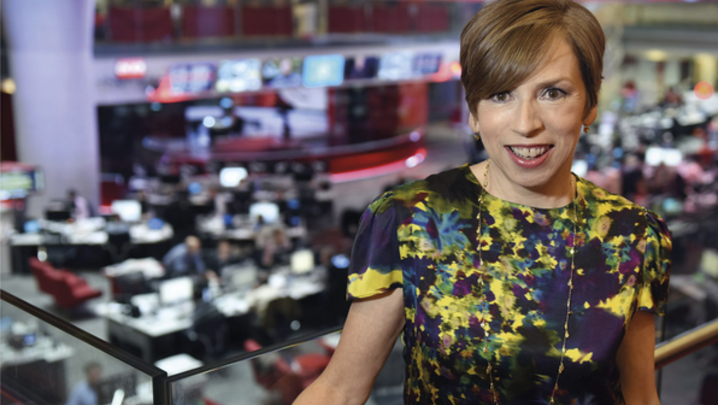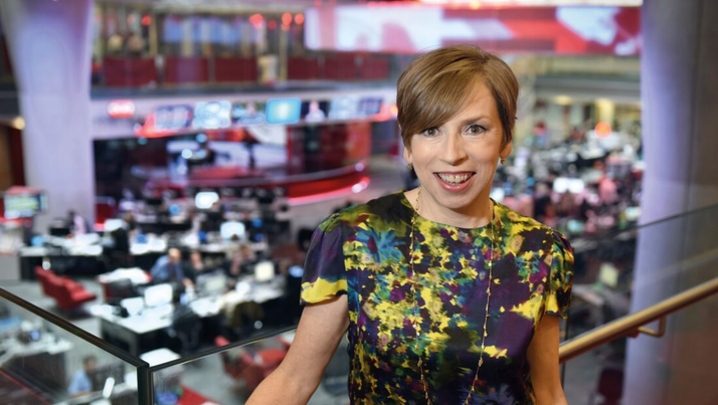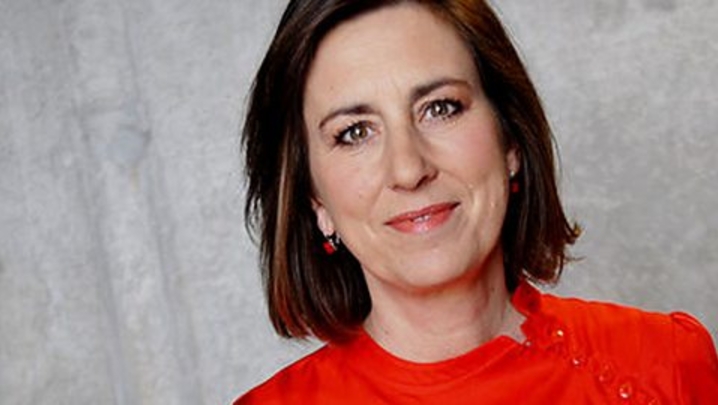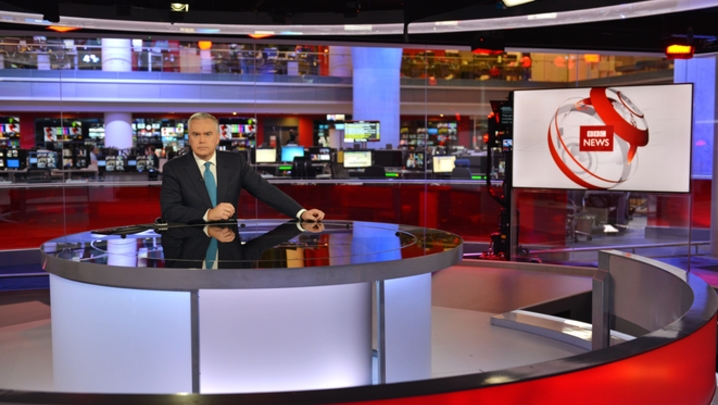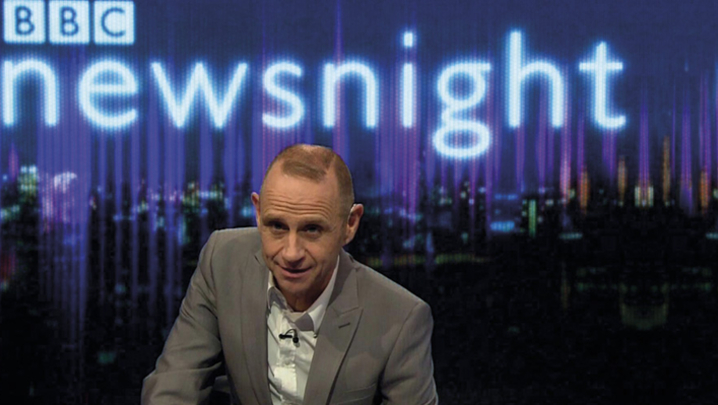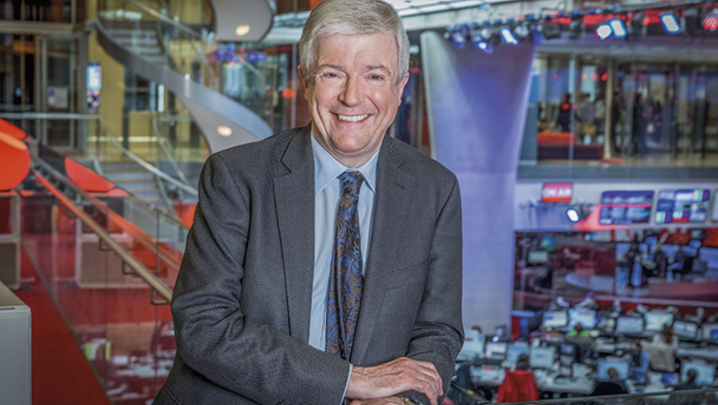BBC news chief Fran Unsworth explains why the broadcaster needs to hold those in power to account – without editorialising
.
Fran Unsworth used her recent conversation with the RTS to support incoming Director-General Tim Davie’s statement of 5 June, when he stressed the need for impartiality across the organisation, regardless of whatever battles between the BBC and government might be going on behind the scenes. “The more valuable we are to audiences, the greater our standing is going to be with the Government,” the BBC’s director of news and current affairs said firmly.
This came as the news chief continued to perform a high-wire act, providing a platform for the Government’s crucial health messaging while simultaneously holding it to account.
Interviewed by former ITN CEO and editor-in-chief Stewart Purvis, she defended her journalists’ challenging of ministers in the daily coronavirus briefings (which ended in late June), even if viewers did not always support this approach.
“When this first happened, there was a sense in the UK of, ‘We’re all in this together, everybody’s got to pull together’,” she said. “The political response became contested over the past 10 weeks, and it’s the job of journalists to ask questions and highlight that, even if the public don’t like it.”
This situation followed a period in which ministers had boycotted other BBC news programmes. Unsworth said she was pleased to see them back on Radio 4’s Today, The World at One and PM, at least for now. “This is an opportunity to speak to 8 million listeners a week. I wish they would put themselves up more widely.”
Still citing impartiality, she didn’t hesitate to double down on her criticism of Newsnight in late May, which she said, failed BBC guidelines in its presentation of Government advisor Dominic Cummings’ controversial trip to Durham.
On 26 May, Emily Maitlis introduced the programme with the words, “Dominic Cummings broke the rules. The country can see that and it is shocked that the Government cannot.”
Unsworth said the very next day that this script “did not meet our standards of due impartiality”.
“Emily’s comment was rooted in evidence but the problem was the language in which it was put – it belonged more to the op-ed of a newspaper page than to the introduction of a BBC broadcast programme,” maintained the head of news.
She expanded on why she immediately criticised the approach without waiting for an official internal inquiry. “I didn’t need to wait for some complaints process to take its course,” she explained. “Our guidelines had been crossed in terms of attributing motivation to the public, to the Prime Minister.”
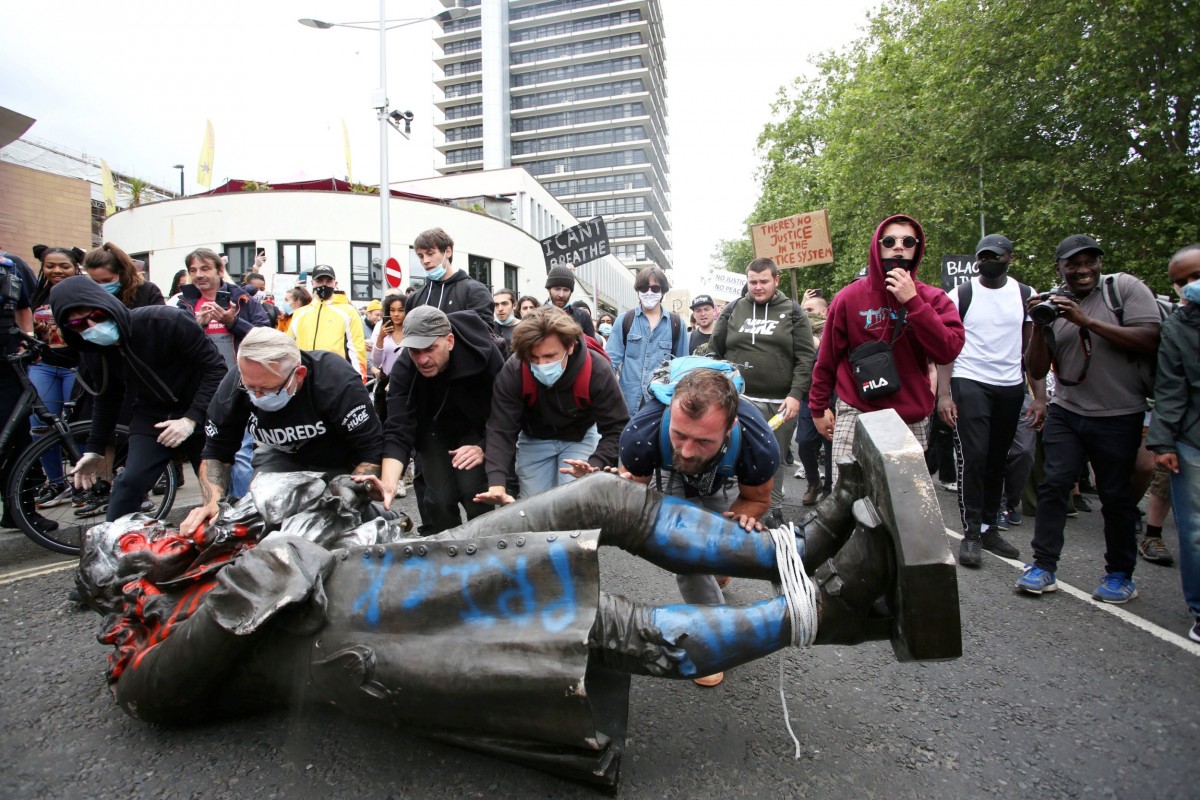
(Credit: South West News Service)
Unsworth stressed that nobody on the Newsnight team was disciplined – “We had a robust discussion” – and emphasised that the programme had had a “brilliant run during this pandemic. They got to the care homes first. We did some great stuff on an Italian hospital. That is the totality of what Newsnight is all about.”
Inevitably, her judgement faced criticism from both sides, leading to accusations that she was bowing to Government pressure. “There was no question of us being cowed by the Government over this,” she insisted.
But was it further proof that BBC presenters could no longer be relied upon to be impartial? “I think it just shows how difficult my job is,” she said with a wry smile.
Another challenge is the corporation’s use of social media, now used by so many people as their main source of news. Unsworth cited a recent Africa Eye story, Anatomy of a Killing, that reached an online audience of millions across the world.
“Social media is a force for good,” she said. “It’s a way of getting information out to particular sections of the audience who now make it their main source of information, but it has its limitations. It lacks context. A limited number of characters makes it quite difficult to fulfil BBC editorial values.”
A running controversy is to what extent BBC News presenters and journalists can comment freely on social media, while adhering to editorial guidelines in their day jobs. The issue is so contentious that former BBC News chief Richard Sambrook has been commissioned by the corporation to conduct a review.
Given the example of BBC world affairs editor John Simpson, who runs his own YouTube channel, in which he is far more opinionated than BBC impartiality guidelines would allow, Unsworth agreed that it was complicated, particularly as Simpson and others were freelance employees. “What licence they have to express their views elsewhere is something we’ve got to look at,” she said.
The coverage of the Black Lives Matter protests was another balancing act for Unsworth, as she strove to navigate a path between the clear moral cause sustaining the movement and covering the protests in all their complexity.
“You can say, ‘I believe black lives matter’ – it’s a statement of fact – but does the BBC sign up to #BlackLivesMatter? The BBC didn’t endorse Black Lives Matter because it’s a campaign. It can endorse the sentiments behind it.”
She was speaking four days after protests in Bristol culminated in the toppling of the statue of Edward Colston, slave trader and city philanthropist. She called the coverage of the protests a complex area for her staff. “The BBC’s not impartial about racism, and that [the killing of George Floyd] was very bad, but there are areas where it goes into matters of public policy, which we have to treat impartially – what shall we do with statues? What shall we do with the education system?”
Telling the story of the pandemic has provided unique challenges, such as when medical correspondent Fergus Walsh filmed inside intensive care units at London’s University College Hospital.
“It was clearly a really important part of the story, how hospitals were coping,” said Unsworth. “There are so many things you have to think about – the safety of your people, the perception issues, because Fergus had to go in full PPE, at a time when it was in short supply. A lot of viewers were saying we’d used up some PPE there, which, actually, we donated. It’s important to show audiences what is happening.”
How BBC News has responded to the pandemic will clearly have implications for the department’s future. But Unsworth confirmed that cuts first announced in January – some 450 jobs to save £80m by 2022 – would go ahead.
With 90% of BBC staff working from home, she predicted that high numbers of staff may prefer to remain in their home offices once New Broadcasting House is back to normal.
Meanwhile, on screen, audiences have become used to seeing guests contribute via Zoom. “What this has shown is that the audience is more tolerant of things [that are] not of high broadcast quality. That’s a lesson we can apply going forward.”
Lockdown has brought audiences back to the delights of linear-television news bulletins and 16- to 35-year-olds have been tuning in. “We thought they were a lost audience for linear-TV news bulletins, but they haven’t been. But to be honest, there is a question mark over the longevity of that.”
Does this give pause to her focus on a digital strategy? Unsworth hesitated to use the behaviour of the captive audience of the past few months as a long-term guide. She said: “It’s difficult to make a judgement at this stage. It doesn’t make you reverse your strategy, it makes you take stock and consider.”
Report by Caroline Frost. Fran Unsworth, director of news and current affairs at the BBC, was in conversation with Stewart Purvis for an RTS webinar held on 11 June. The producers were Sue Robertson and Martin Stott.

